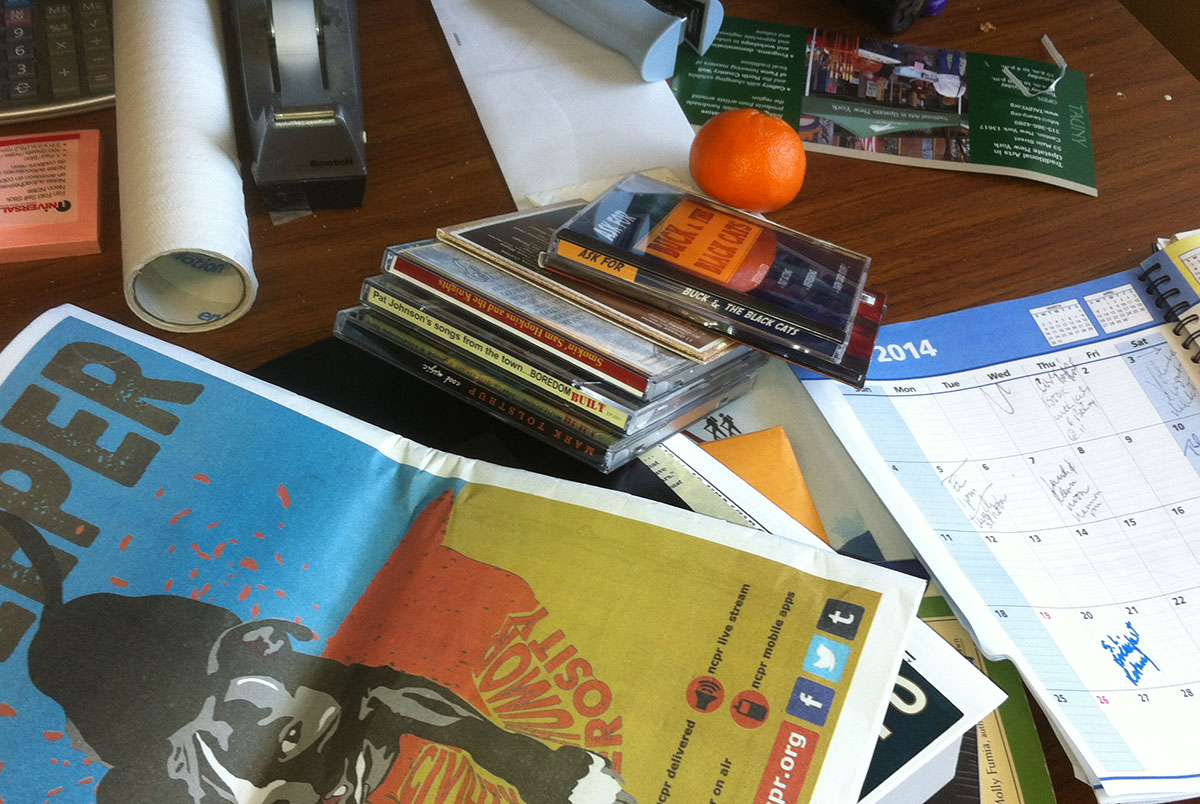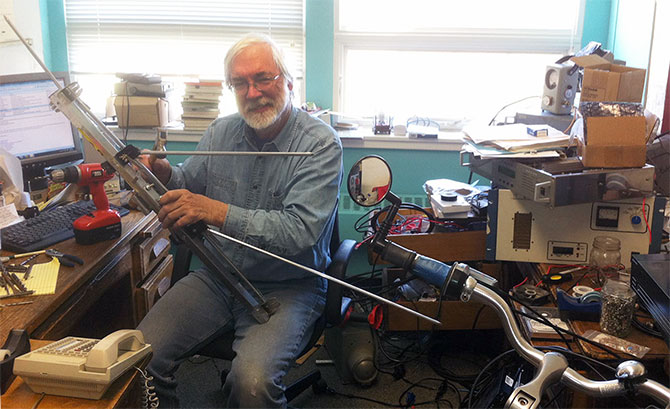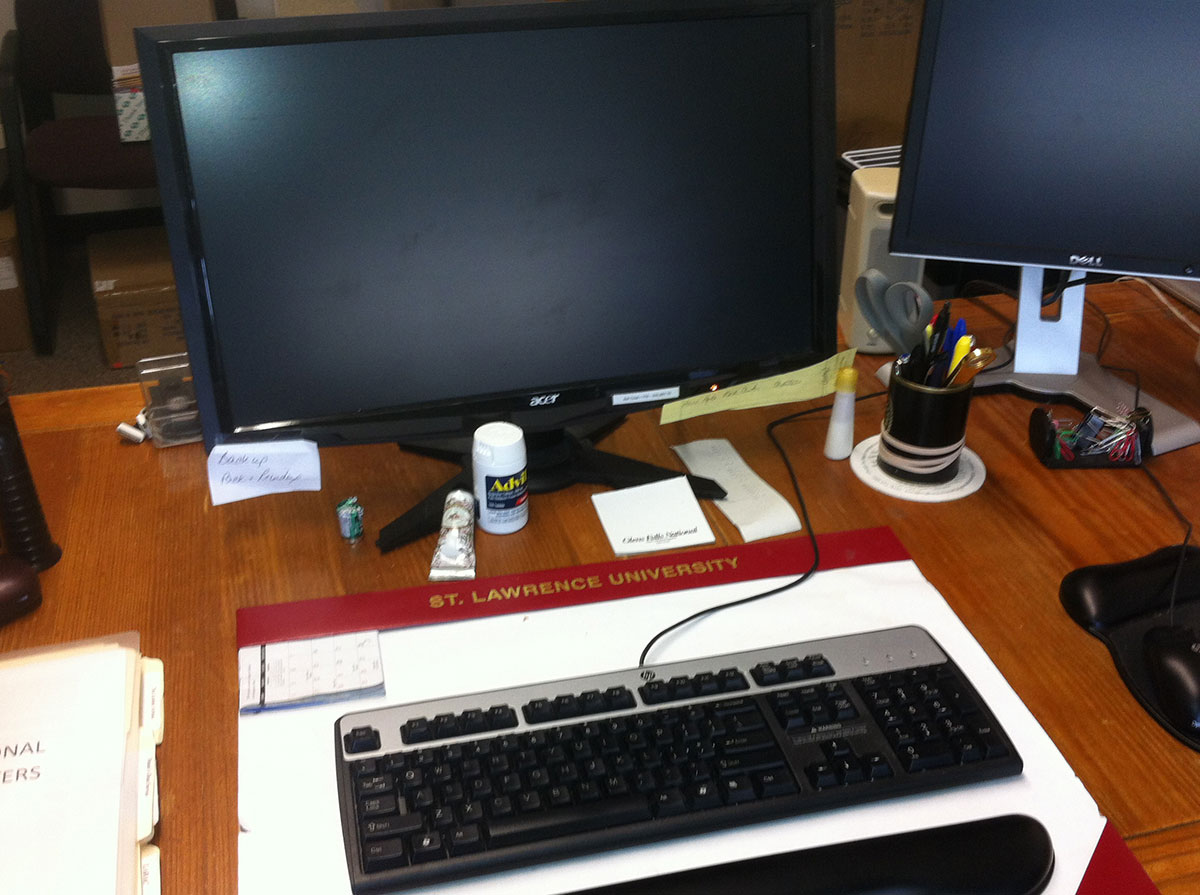Does it matter if your desk is messy?
Just read an Utne article on a Monitor on Psychology report published last fall. The answer to the question is: yes.
Here’s how it shakes out. If you have a neat desk, you are more likely to make socially-responsible decisions than the messy-deskers. In the study, 81% of neat-deskers responded yes when asked to make a charitable contribution. Messy-deskers? Only 67%.
The tidy room participants also made healthier decisions (67 percent chose an apple over chocolate) compared to the messy-room participants (only 20 percent chose the apple).
But for those of us with messy desks, it’s not all bad. (Yes, except when I’m expecting visitors or I’m leaving for an extended trip, my desk is generally, well, not as bad as Radio Bob’s, but definitely a far cry from Sandy’s.)
Messy desks: creative thinking and innovation.
(Kathleen) Vohs and her team conducted another test asking participants to come up with creative uses for a ping-pong ball. While those in the tidy rooms and messy rooms both came up with extensive lists, an independent assessment determined that the ideas coming from the messy room were far more creative. A separate test involving terminology on a menu also showed that terms such as “classic” were more appealing to those in the tidy rooms while “new” resonated with those in the messy rooms, suggesting to researchers that the messy workspaces correlate to innovative thinking.

My desk: socially responsible? innovative? or just needing to take the time to clean up my desk? Photo: Ellen Rocco
What about people with sort of messy or sort of neat desks? Do the neat personality elements negate the messy elements? Or do you have some of both?
This is ridiculous. I better go clean my desk and stop rationalizing the disorganization.
Tags: organization, psychology, work, work space










Years ago, when living in Germany, I went to hear a Hindu guru — a woman — speak about spiritual matters. One of the German women in the audience recounted the story of her messy husband and asked if the guru could confirm that his disorderly ways were a sign that his soul was un-evolved. Perhaps he needed a few thousand more incarnations to sort out his slobbishness? The guru smiled and shook her head and told the story of the incredible grunge and muddle she had found surrounding many of her own mentors. Even a holy man can have a messy exterior, she said, or words to that effect. The German lady who asked the question sat down stiffly, clearly dissatisfied with the answer. But as a confirmed life-long creator of chaos, I breathed a sigh of relief. –Brian
Whilst employed by the US Army, 20 years or so ago, a small plastic sign given to me by a friend sat upon my mess, I mean desk; it said:
“If a cluttered desk is the sign of a cluttered mind, what is the significance of an empty desk?”
In the not too distant past I recollect seeing said sign somewhere amongst my junk, I mean treasures; however, a quick perusal of where my right brain suggested I look, moments ago, failed to unearth it.
My own concept of why some folks are consumed with neatness and some of us are not was formed long ago when I was introduced to the thermodynamic/physics concept of entropy. Entropy is variously defined in thermodynamics as a measure of the disorder in a given system, as well as the closeness with which a given system approaches equilibrium; therefore complete system disorder is equivalent to equilibrium under the concepts of entropy. This is the ultimate fate of the universe in which we exist and likely all universes. Locally entropy can be temporarily reversed by the input of energy (at the expense of increased entropy elsewhere, the Sun) via machines and living organisms; the neat critter, desk, yard, whatever. Unbeknown to most is that the actions of living organisms actually increases the rate at which the entropy in the universe tends toward a maximum or heat death. Folks who know nothing about the concepts of entropy, the vast majority, do understand that when living things stop living they decay, smell and become unpleasant to view. This then forms the nexus of my contention that cleanliness (being next to godliness, as “they” say) is humans bargaining with themselves to push the inevitable date with their own demise out of mind by creating what they consider an appealing alternative.